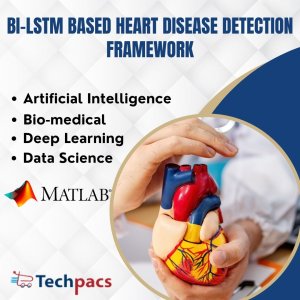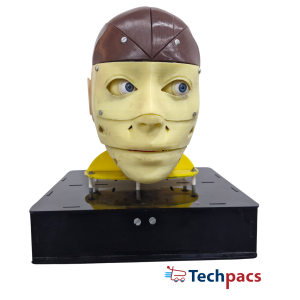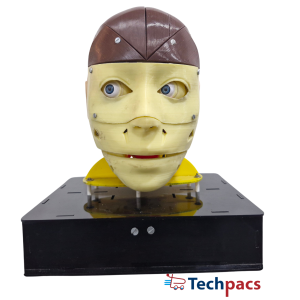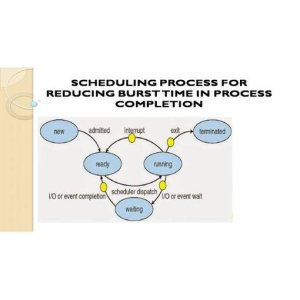Maximizing PCOS Detection Accuracy through Voting Ensemble Learning with PCA Feature Selection
Problem Definition
The current research landscape surrounding the identification and classification of Polycystic Ovary Syndrome (PCOS) in women shows promising advances, but also highlights key limitations that hinder the accuracy and effectiveness of existing methods. While various approaches utilizing Machine Learning (ML) classifiers have been introduced, these methods struggle to handle large and complex datasets, ultimately resulting in decreased system accuracy. Additionally, manual feature selection by some researchers has led to subpar PCOS detection accuracy, while automated feature selection techniques have proven to be sensitive to small frequencies and ineffective. As a result, there is a clear need for a new and improved PCOS detection method that can effectively address these limitations and enhance the early detection and classification of PCOS in women.
Objective
The objective of this project is to develop a new and improved method for the detection and classification of Polycystic Ovary Syndrome (PCOS) in women by addressing the limitations of existing approaches. This will be achieved through the implementation of a unique PCOS detection model based on Ensemble Learning techniques. The main focus is on enhancing the accuracy of PCOS classification while reducing complexity and processing time. The project involves data collection, pre-processing, feature selection using Principal Component Analysis (PCA), and classification using a voting-based Ensemble learning approach with three Machine Learning estimators. The goal is to create a more effective and efficient system for the early detection and classification of PCOS.
Proposed Work
In this project, the existing gap in PCOS detection methods has been identified through a literature survey, which highlighted the limitations of current models using ML classifiers and feature selection techniques. The main objective of this proposed work is to enhance the accuracy of PCOS classification while reducing the complexity and processing time. To achieve this goal, a unique PCOS detection model based on Ensemble Learning techniques is proposed. The project involves data collection, pre-processing, feature selection using PCA, and classification using a voting-based Ensemble learning approach.
The dataset for this project contains information related to PCOS from different labs across Kashmir, with 541 entries and 41 features, including age, weight, height, BMI, and medical history.
The pre-processing stage involves handling null and repeated values, separating input and output data, and preparing the dataset for feature selection. Principal Component Analysis (PCA) is then applied to select the most important features automatically, reducing the dimensionality of the dataset to 30 crucial features. This selection is crucial for predicting PCOS accurately and efficiently. The voting-based Ensemble Learning model is adopted for classification, using three ML estimators – Logistic Regression, Random Forest, and Support Vector Machine. The model's performance is evaluated based on various parameters like accuracy and precision to determine its effectiveness in PCOS detection.
Application Area for Industry
This project can be beneficially applied within the healthcare industry for early detection and classification of Polycystic Ovary Syndrome (PCOS) in women. The proposed PCOS detection model based on Ensemble Learning techniques addresses the challenges faced by existing models, such as handling large and complex datasets, feature selection, and accuracy of classification. By collecting data manually from different labs, applying data pre-processing techniques, and using Principal Component Analysis (PCA) for feature selection, the model selects only important and crucial features for PCOS detection. The implementation of voting-based Ensemble learning technique with Logistic Regression (LR), Random Forest (RF), and Support Vector Machine (SVM) further enhances the accuracy of classification. Overall, the benefits of implementing this solution in the healthcare industry include improved accuracy in PCOS detection, reduced processing time, and efficient utilization of crucial features for accurate predictions.
Application Area for Academics
The proposed project aims to enrich academic research, education, and training by offering a new and improved method for detecting Polycystic Ovary Syndrome (PCOS) in women. By utilizing Ensemble Learning techniques, the project strives to enhance the accuracy of classification while reducing complexity and processing time. This can open up new avenues for research in the field of PCOS detection, providing a more efficient and effective methodology for identifying the disease at early stages.
The relevance of this project lies in its potential applications for pursuing innovative research methods, simulations, and data analysis within educational settings. Researchers, MTech students, and PHD scholars in the field of medical informatics, healthcare analytics, and women's health can benefit from the code and literature generated by this project.
The use of Ensemble Learning techniques, such as Voting Classifier with Logistic Regression, Random Forest, and Support Vector Machine, can offer insights into how to improve the accuracy of PCOS detection models.
Furthermore, by incorporating algorithms like PCA for feature selection and XGBoost for boosting performance, the project covers a wide range of technologies and research domains within the field of medical data analysis. Researchers can leverage the findings of this project to explore new ways of utilizing machine learning and data analytics in healthcare settings, ultimately leading to advancements in the early diagnosis and treatment of PCOS.
In conclusion, the proposed project has the potential to significantly impact academic research, education, and training by offering a novel approach to PCOS detection. By addressing the limitations of existing models and incorporating state-of-the-art algorithms, the project lays the groundwork for future research in the field of women's health and medical informatics.
The code and literature generated by this project can serve as a valuable resource for academic researchers, students, and scholars looking to expand their knowledge and expertise in the realm of PCOS detection and classification.
Algorithms Used
The proposed work utilizes Principal Component Analysis (PCA) for feature selection, which helps in selecting only important features from the dataset to improve classification accuracy and efficiency. PCA is effective in reducing the dimensionality of data and improving the performance of classifiers by focusing on the most relevant features.
Furthermore, the Voting Classifier, which combines multiple machine learning estimators such as Logistic Regression, Random Forest, and Support Vector Machine, is employed to classify PCOS affected and non-affected individuals. This ensemble learning technique leverages the strengths of individual classifiers to make more accurate predictions and enhance the overall performance of the model.
Overall, the combination of PCA for feature selection and the Voting Classifier for classification contributes to achieving the project's objective of enhancing the accuracy of PCOS detection while reducing complexity and processing time.
It improves the efficiency of the model and ensures reliable predictions for identifying PCOS in women.
Keywords
PCOS detection, PCOS prediction, Voting classification, Machine learning, Classification algorithms, Feature engineering, Data preprocessing, Medical diagnosis, Women's health, Gynecology, Reproductive health, Hormonal disorders, Ovarian cysts, Health risk assessment, Women's fertility, Healthcare technology, Artificial intelligence, Ensemble Learning techniques, ML classifiers, PCOS detection model, Ensemble learning technique, Logistic Regression, Random Forest, Support Vector Machine, PCA technique, Data pre-processing, Feature Selection, Performance evaluation, Health informatics, Healthcare innovation, Early disease detection.
SEO Tags
PCOS detection, PCOS prediction, Voting classification, Machine learning, Classification algorithms, Feature engineering, Data preprocessing, Medical diagnosis, Women's health, Gynecology, Reproductive health, Hormonal disorders, Ovarian cysts, Health risk assessment, Women's fertility, Healthcare technology, Artificial intelligence, Ensemble Learning, Principal Component Analysis, ML classifiers, Balanced dataset, Feature selection, Classification accuracy, Voting-based model, Logistic Regression, Random Forest, Support Vector Machine, Performance evaluation, Research methods
| Shipping Cost |
|
No reviews found!



















































No comments found for this product. Be the first to comment!